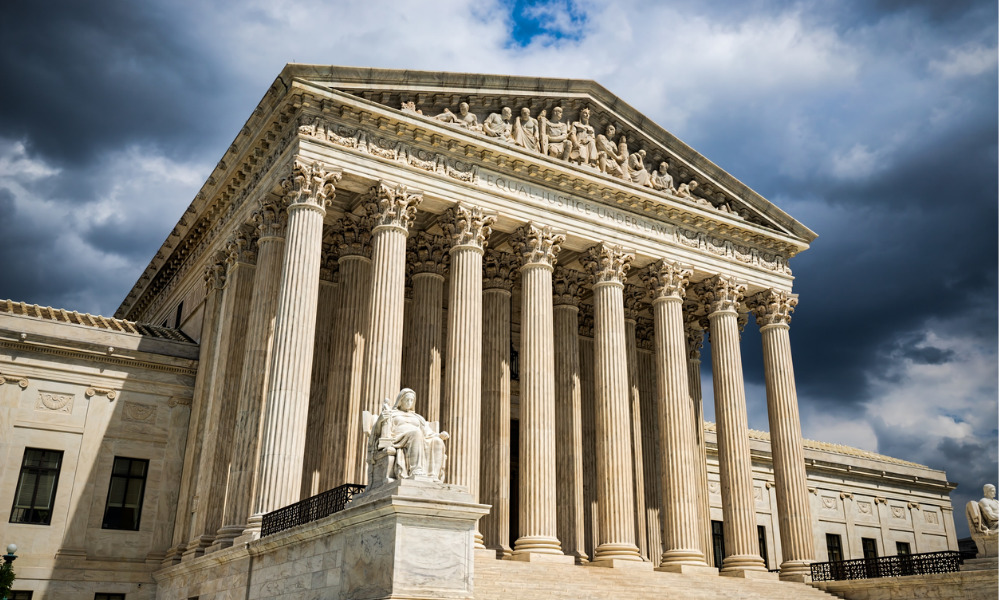
Employment lawyer offers guidance for arbitration agreements going forward

The Private Attorneys General Act (PAGA), a California law that allows employees to sue over workplace violations on behalf of the state, has been limited by the U.S. Supreme Court.
In an 8-1 ruling, the Supreme Court said on Wednesday that PAGA doesn't permit employees to circumvent agreements to bring legal disputes in individual arbitration rather than court. Furthermore, the ruling doesn’t allow employers to enforce the waiver of an employee’s right to bring PAGA claims entirely, according to labor and employment lawyer Gary McLaughlin, partner at Los Angeles-based law firm Mitchell Silberberg & Knupp.
“But it does say that parties may, through an arbitration agreement, separate an employee’s individual PAGA claims (meaning those based on violations suffered by that individual employee) from those addressing violations suffered by other employees, and send that employee’s individual PAGA claims to arbitration,” McLaughlin told HRD.
The Supreme Court also found that an employee whose individual PAGA claims have been compelled to arbitration lacks standing to pursue the non-individual claims in court. As a result, the high court found that the non-individual claims should be dismissed.
“Under this view, employers can effectively avoid representative PAGA actions through the use of arbitration agreements, similar to how they can avoid class actions through waivers in arbitration agreements,” McLaughlin says. “The end result is likely that fewer PAGA actions will be prosecuted, and for employers with arbitration agreements, the potential exposure from PAGA is greatly reduced.”
However, McLaughlin adds, the issue of PAGA standing is a matter of state law and potentially leaves open a significant loophole. “It’s possible that a California court could find that employees whose individual PAGA claims are compelled to arbitration continue to have standing to pursue non-individual representative PAGA claims in court, which could greatly diminish the practical impact of the Supreme Court’s ruling,” McLaughlin says.
The decision overturns a 2014 California Supreme Court ruling that allows PAGA to circumvent such agreements. In Iskanian v. CLS Transp. Los Angeles LLC, it was ruled that a worker's PAGA suit isn’t subject to their arbitration agreement because they litigate as a proxy for the state, which can't be required to comply with an arbitration procedure it didn't sign on to, according to Law360.
This most recent ruling stems from a case involving former Viking River Cruises Inc. sales representative Angie Moriana, who sued in 2018 on behalf of hundreds of workers over alleged violations of several provisions of California’s wage-and-hour laws. Moriana waived her right to bring such a suit when she signed an agreement with the company, but avoided arbitration by bringing a claim under PAGA.
The case came before the Supreme Court after a California appellate panel in September 2020 said that the Iskanian rule prevented Viking River from pushing Moriana's PAGA claim into arbitration. The panel upheld a Los Angeles County trial judge's order that denied the company's motion to compel arbitration. The California Supreme Court denied Viking River's petition for review in December 2020.
Uber, Postmates, the U.S. Chamber of Commerce and other business groups have petitioned the Supreme Court to end PAGA. Meanwhile, proponents of the state law, such as the California attorney general, argue it gives workers the ability to hold employers accountable. PAGA allows individuals to sue on behalf of similarly situated people who work for the same employer: California collects 75% of any penalties collected and aggrieved workers get the remaining 25%.
The state earned $88 million in penalties in 2019 from PAGA claims, according to Bloomberg Law.
“Employers with arbitration agreements should promptly review their agreements and update them as needed to conform to the Supreme Court’s ruling,” McLaughlin says. “Many arbitration agreements had expressly carved out PAGA claims in order to ensure enforceability under California law, and employers will presumably want to remove those carve-outs now.”
“Employers should also be sure that their agreements don’t purport to waive PAGA claims entirely, but rather mandate arbitration of employees’ individual PAGA claims,” McLaughlin adds. “California employers who don’t currently use arbitration agreements may want to consider implementing them in light of this ruling.”